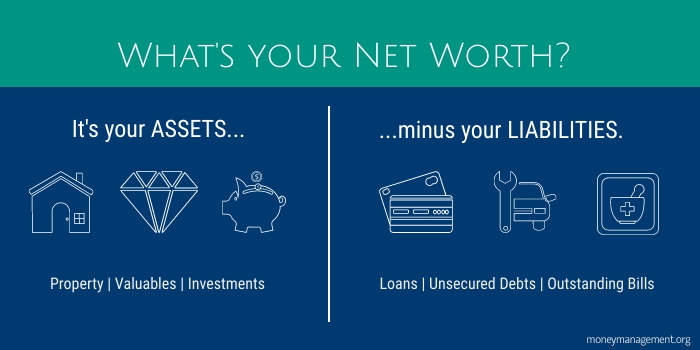Everyone wants to make more money. Even if you have a job you still want to have a side hustle, business etc that generates extra income for you.
The challenge for most people is that most lucrative businesses require capital which most people don’t have. What if there are businesses you can start with little money, so you may not need to borrow the capital to start?
We did some research to come up with low cost, lucrative businesses you can start with small capital, to generate reasonable income for yourself.
1. Blogging
When people hear blogging they think it’s all about writing articles or posts. No, blogging consists of creating any different type of content on a platform such as website, social media (eg Instagram) etc.
Your blog can be photo focused or video focused (otherwise called vlogging). Blogging can be creating unique content (articles, photos, videos) of your own or posting snippets of other people’s content and directing people to those content.
The key thing to start is to decide
(a) the type of content you want or will be comfortable creating eg a current affairs blog on Instagram showing interesting photos and videos, a blog writing about opportunities & careers, a photo blog on travel and interesting places etc.
You can choose what to blog about and the medium you wish to use to blog.
(b) Which platform to use for your blog: If you are social media person you can use Instagram for your blog especially if it’s picture, video focused and you are familiar with social media. The advantage is you will spend zero on a website, hosting etc. You just create content, grow your followers etc. If you choose to create a written blog then you will need a website (or use any free website provider), then host your blog site. You can host your blogs free on WordPress.
How to Monetise Your Blog Site
If you are creating a blog website you will need good content and some traffic before you can start making money. When you have created a lot of good content and finally have some traffic (at least 1,000 visitors per month) you can start exploring any of the below monetisation methods.
- Google Adsense: Adsense is usually the easiest and first means of monetising a blog website. You simply sign up to the Adsense program and then place the ad codes on your website/blog. Adsense serves ads from different advertisers on your blog and shares the revenue with you (the publisher).
- Affiliates: You can sign up to ecommerce, software or online business sites that have affiliate program especially for products that are relevant to the content on your site. You put affiliate links on your blog articles so people may click to go to the website selling those items or products. When people referred from your site make a purchase you can make as much as 50% commission in some cases (depending on the commission set by the Affiliate website/seller)
- Direct Ads: If you have built up some level of users and traffic to your blog you can start attracting interest from companies looking to advertise directly on your site. You can create an advertising rate card and sell ad space on your website.
For Other Types of Blog like an Instagram Blog you can monetise by charging sponsored post fees and adverts.
2. Information Marketing
Much of what goes on in the internet is actually one form of selling information or the other. Starting an information marketing business is straightforward.
If you have an expertise area or something you know that others will be willing to pay for you can easily start a business selling that information.
You can sell information in the form of software, templates, ebooks, video course etc. Today there are lots of platforms that can help you sell so you don’t need to go through the hassle of setting up a website and payment collection system.
Globally you can sell digital information in any format (ebook, video, downloadable software, pdf etc) via several global and local platforms which include Flutterwave store, Paystack storefront, Selar, Gumroad, DPD, Ejunkie, Easy Digital Downloads etc.
You follow the major steps of
- finding the right product to create
- create the product in the best format for easy delivery and consumption for buyers
- choose a digital platform to sell your information product
- Set up an account, upload your digital product and create copy for the landing page
- devise a marketing plan that will attract the right prospects to your digital products page(s)
3. Affiliate Marketing
Affiliate marketing can be a profitable business that requires little or no capital to start but will demand lots of effort from you.
Affiliate marketing can come in various forms but it basically means finding and promoting products for 3rd parties where you get paid a commission per sale. The commission you earn can vary depending on the affiliate program and even on the particular product you promote.
Different products in the same affiliate program/website can have different commissions. Usually high priced software products or digital products pay higher commission than say ecommerce or physical products with lower profit margins.
Earning from affiliate marketing starts from finding and choosing the best affiliate program. For Nigerians and many Africans there are very little options to choose from.
One Affiliate program however which admits Nigerians and can become profitable is Amazon Affiliate Program. You will need a website or a social media account on a platform like Twitter which significant following and engagement.
Then you will need to regularly create quality content around a particular niche which will enable you attract thousands of people and pageviews. You can insert affiliate links to several quality products with good reviews so some of your targeted visitors may follow these links to make purchases.
4. Freelance Writing
If you have decent writing skills you can pull off a decent income from freelance writing. The opportunities are now abundant. There are now many platforms where you can sign up, bid for writing jobs and earn for each writing project you complete.
You can also set up your own web page detailing what writing services you offer and promote them via strategic articles and guest posts.
Asides the popular freelance sites where you can get freelance writing gigs such as Upwork and Fiverr you can also join other sites such as Freelancer, Contently, Freelance Writing Jobs, Contena, Guru.com.
You can also apply for full time, part time, contract freelance writing gigs on websites such as Flexjobs, Remote.io etc.
5. Social Media Management
If you know your way around major social media platforms/sites you can make good steady income helping small businesses create content on and manage their social media handles.
The major social media sites you can help businesses manage are Instagram, Twitter and sometimes Facebook.
You just need to be organised, learn basic content creation and design skills for the particular social media site you want to focus on. You may want to just zero in on businesses on Instagram (such as ecommerce, fashion/clothing etc).
Help them create a content calender, create/design content and post for them based on schedule. Use hashtags to attract and grow followers or fans for the pages.
As a social media manager you can handle social media accounts of several businesses and charge a monthly retainer to create content and grow their pages.
See an example of a social media management agency helping other businesses manage their social media pages – https://pejasdigital.com/
To start you don’t even need a paid website of your own. You can create a free page on any free website hosting service so people can go there to read what you offer and how to contact you.
6. Virtual Assistant
If you have little money and plenty of time on your hands, one business you can start with almost nothing and start earning decent income is a Virtual Assistant business.
As a virtual assistant you help people or businesses handle certain administrative or specific tasks like writing, research, running errands etc.
To start as a virtual assistant you may first define the scope of services you offer. Limit them to services or tasks you will have little problems offering because reputation is important if you are to get repeat business.
Next create a profile. No need spending money to do this. You can create a social media profile/page for the business or set up a free About page describing what you do, services/tasks you render as a virtual assistant and how to contact you. It may also help to have handy a rate card that shows your fees for different tasks.
You can also sign up on some sites where you can find and apply for virtual assistant tasks. TaskRabbot, PeopleperHour etc are a few of the websites where you can get virtual assistant work.
7. Real Estate Agency
You can start your own real estate agency with no capital in your current city. As a real estate agent you simply connect buyer/renters with sellers and owners looking to lease/rent out their properties.
You can, for a start specialise in rental properties – apartments, duplexes etc.
You can register your business name and start building your rental property database by reaching to people building new houses or looking to rent out their houses. Check if there are any licenses or registrations required to be an agent in your location/country.
When you have a decent collection of properties you can start looking for renters. Join forums, post on social media. Real Estate agencies earn commission on any property rented or bought through them.
As your network grows you stand to make more money as you match more property owners with buyers or renters.
8. Tutoring
If you are very good in one or more academic subjects or even non-academic subjects like playing a musical instrument (piano, guitar etc) you can actually create a decent business as a tutor.
Your biggest challenge will be to identify your ideal buyers and convince a few to take you on. You can tutor kids of a couple parents (and build a schedule that allows you have at least a handful of clients). Your tutoring can be done several times a week at specific times so you create a calendar that enables you take on a few clients.
The interesting thing is that asides your knowledge you do not need to spend on things like a venue. Most of your prospective clients will be happy for a hime tutoring arrangement.
You only need at least 3 clients that you bill a decent monthly amount to make it a worthwhile business.
9. CV/Cover Letter Writing
Even if you are not a HR expert or very skilled in CV Writing you can actually acquire the skills very quickly by accessing free online resources on CV writing.
To get samples you need to use in selling your CV writing service you can create new CVs for a few friends. These samples can be proof that you can help anyone rewrite or re-create their CV.
The key is to price your CV writing services appropriately. You can charge very affordable prices for the entry level, mid and senior level respectively.
You can also easily find and build your own diverse library of CV templates that you can then use to create attractive, professional CVs for your customers.
If you have a laptop already and can access reliable internet you are halfway there. If you can write well then all you need is
- find good resources and templates on CV writing
- Do sample CV writing jobs (even if for free) to get initial testimonials and test your skill
- Start creating simple content and advice around CV writing, post them in relevant forums and social media targeting jobseekers/career individuals
- Have a simple web page where you can link to for anyone to reach you or contact you
10. Event Planning
If you are highly organised and love planning events, parties, weddings etc this could be turned into a lucrative event planning business for you.
Lots of people are busy with their day jobs or are too lazy to plan significant events in their lives like birthday parties, weddings, traditional marriage events, child dedication parties etc.
You can create a very good cashflow positive business helping people plan and execute their events if you live in a big city.
Of course you may need to take more courses to learn more about event planning and especially the aspects of finance, how to charge fees and how to use tools that help you stay organised and effective.
But these are no big deals. You can find event planning courses online and plenty of guides on how to start your event planning business.
By having the passion/interest and researching a few guides on event planning business you should be ready for your first client. Start by reaching out to friends, create a business name/card or a simple webpage that tells people what you do. You might even offer to waive your fees to help a couple of friends plan/organise their next events.
This way you have videos and photos you can use as your sample when talking to future clients. And also you may need to be more outgoing, attend events, network, give out your cards and meet potential clients.
RECOMMENDED
- If you are looking for how to get quick loans to start your business check out – Easy Ways to Get Loans Without Collateral
- Tips on How to Grow Passive Income Online



